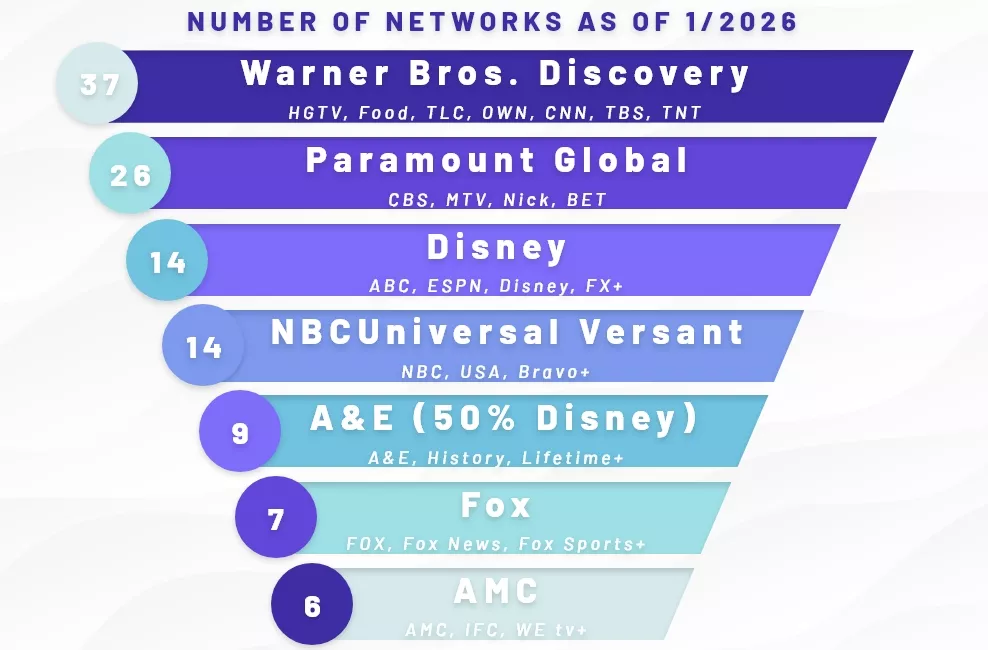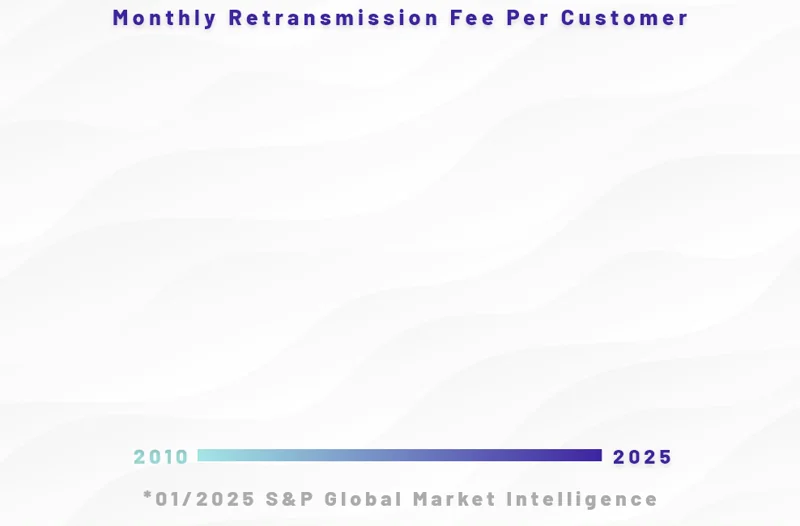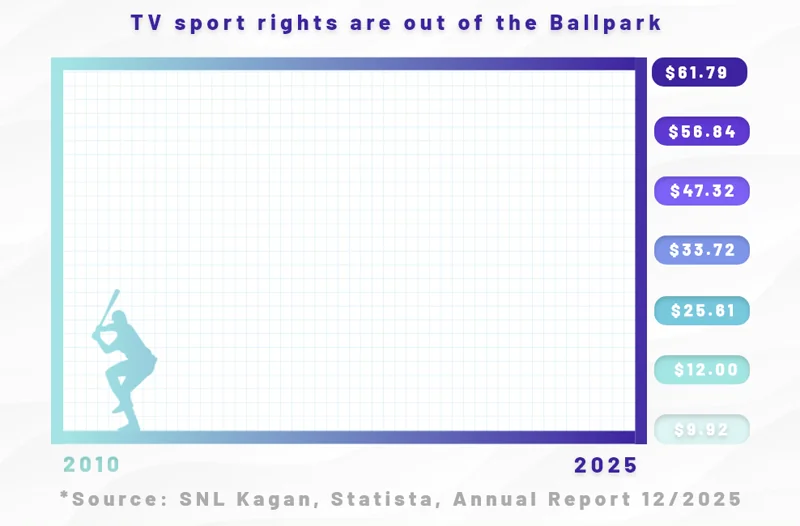TV Channel Negotiations
Armstrong strives to deliver the best TV programming available with the channels you want at a great value. All programming we offer is subject to agreements with media companies who provide content and the rights to us. With network fees dramatically increasing and impacting your monthly bill, we wanted to give you a backstage pass to better understand the economics of the TV business.
The rising cost of programming.
Programming costs are the largest component of your monthly cable bill. You should know that networks don’t hesitate to pull the plug on viewers. By doing this, they’re using you as a bargaining chip to get higher fees, which only increases your TV bill.

7 media giants own 90% of the TV channels you watch.
Most price increases are due to rising fees charged by large media companies that we, your local cable operator, must pay. Sometimes, we are forced to share those costs with our customers. Unfortunately, it’s about power: seven multi-billion-dollar corporations own or control nearly 90% of channels. As they continue to use their size and power to demand more money, we work hard to keep costs under control.
Local Broadcast Station fees charged to Cable Operators have increased exponentially over the past decade.
Local broadcast channels are free over the air with an antenna. However, local stations charge cable operators high fees to provide their channels to you. And, the price continues to rise. We work hard to fight rising costs and keep your monthly bill low.


TV sports rights continue to skyrocket, year after year.
Escalating salaries of star players and coaches place large financial demands on teams and leagues who drive up programming costs to cover expenses. These costs are passed on from the networks to your local cable company and then to you.
Many teams, leagues and conferences have their own networks and charge TV providers separate, additional fees. To maximize their profits, these sports networks require TV providers to include them on basic lineups, forcing you to pay for sports programming - even if you have no interest in watching.
We're on your side.
Armstrong works hard to negotiate fair deals. We protect our customers by working with a national cooperative of TV providers, negotiating fees and programming on your behalf. We want you to have access to all your favorite programs at a price that’s fair. We know that anything less is unacceptable – it’s why we go to bat for you.
Frequently Asked Questions
Just seven multi-billion-dollar corporations own or control about 90% of existing TV networks – both those you want, as well as many of those you don’t. And they won’t let you have the most-popular networks unless you get the less-popular ones, too. When we try to negotiate a deal for just the most-popular networks, a common response from network owners is to raise the price for those networks higher than the bundled price, effectively eliminating this option from consideration.
It’s our goal to provide you with a great programming lineup at a reasonable price. When the channel owners ask for more money, we negotiate with them to keep the costs you ultimately pay as low as possible. Many channel owners routinely demand 20%, 30%, 50%, or even higher increases during the contract renewal negotiations even though ratings for their channels have dropped and/or their programs have been canceled.
Armstrong says it is working to keep prices low, so why does my cable bill keep going up every year?
Armstrong says it is working to keep prices low, so why does my cable bill keep going up every year?
While we pledge to hold prices as low as possible, annual adjustments are necessary because of the rising cost of content. In fact, despite our best efforts, network fees have increased at 3½ times the rate of inflation over the past 15 years. Annual rate increases for television services are almost entirely due to these ever-increasing programming license fees.
Even though over-the-air broadcast signals are free to viewers without a cable or satellite TV subscription, most broadcast station owners since a federal law passed in the 1990’s have required cable and satellite companies to pay for the right to carry those same signals. Most station owner groups have now become particularly aggressive in seeking payments as less viewers are watching their commercials. The ever-increasing amount of money that these groups take out of the pockets of American consumers is outrageous. Over the past decade, these retransmission fees have increased by over 600% to $12.2 billion in 2020.
We would love to do that, but the individual TV stations have exclusive contractual broadcasting rights over the affiliated network and syndicated programming they air in their markets. Under existing law, the owners can prevent Armstrong from replacing your local broadcast station with the signal of an out of market broadcast station. In short, local broadcast stations have been given monopoly power by the federal government and they use that power to squeeze more money out of cable and satellite providers and their customers.
Visit the Self-Help & Support center or contact us for further assistance.


